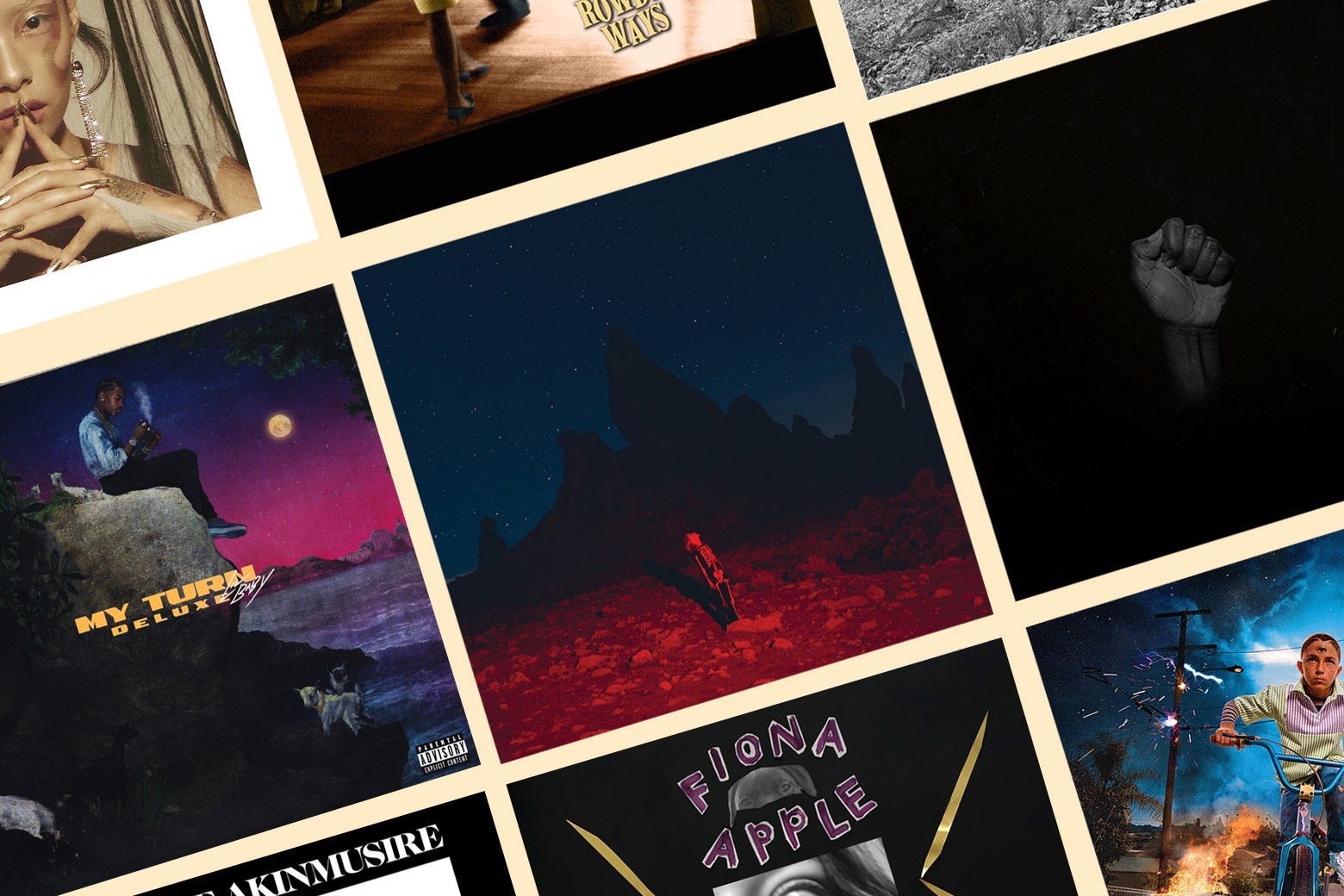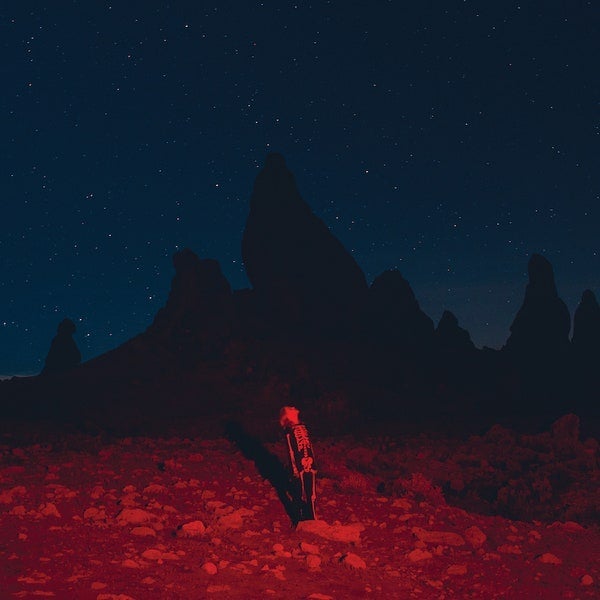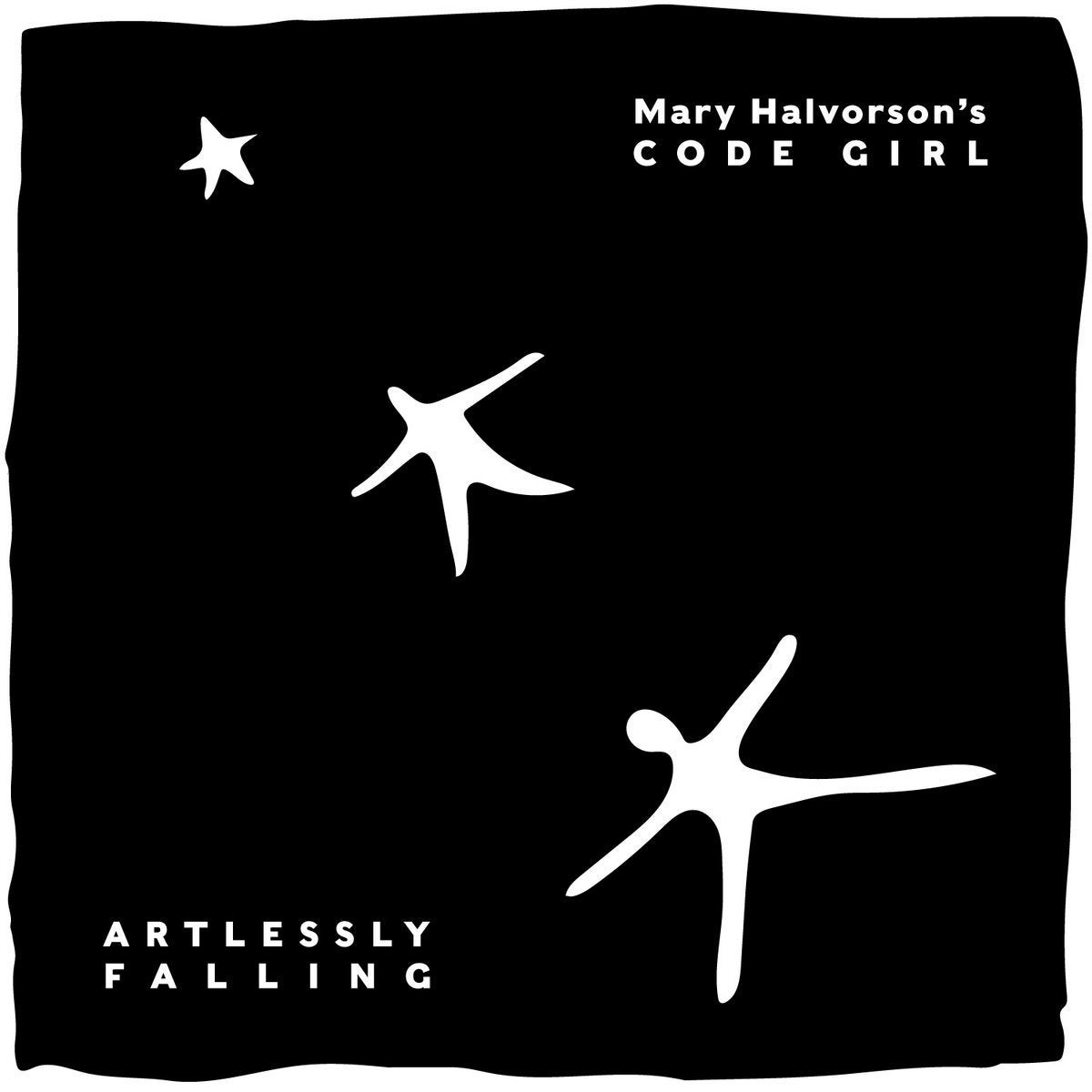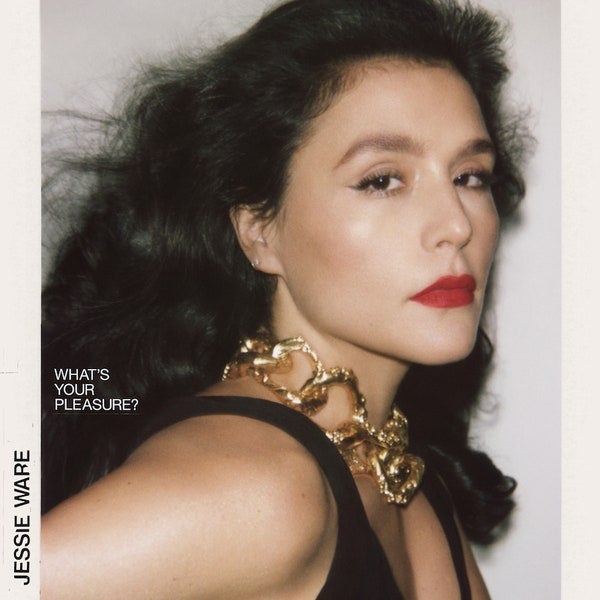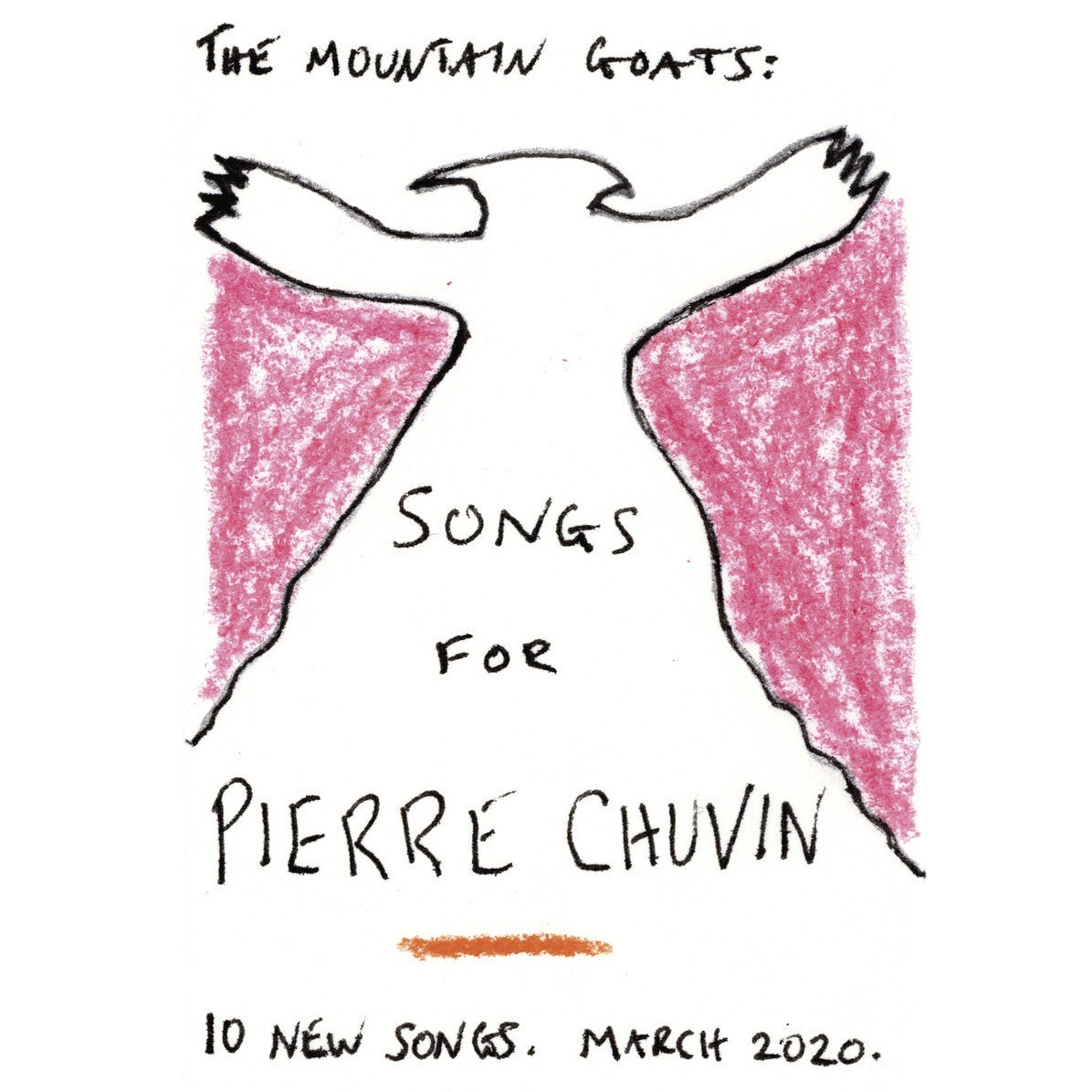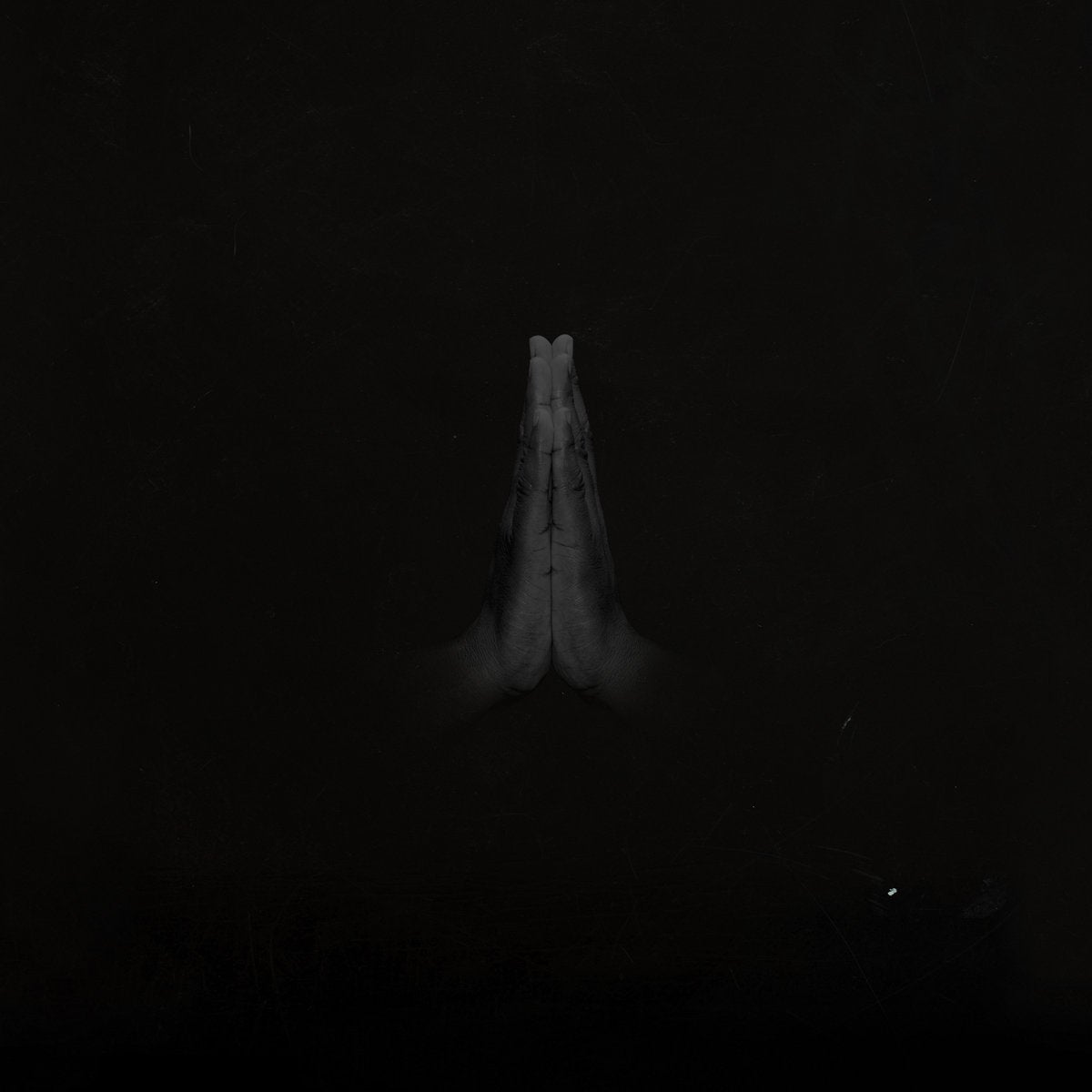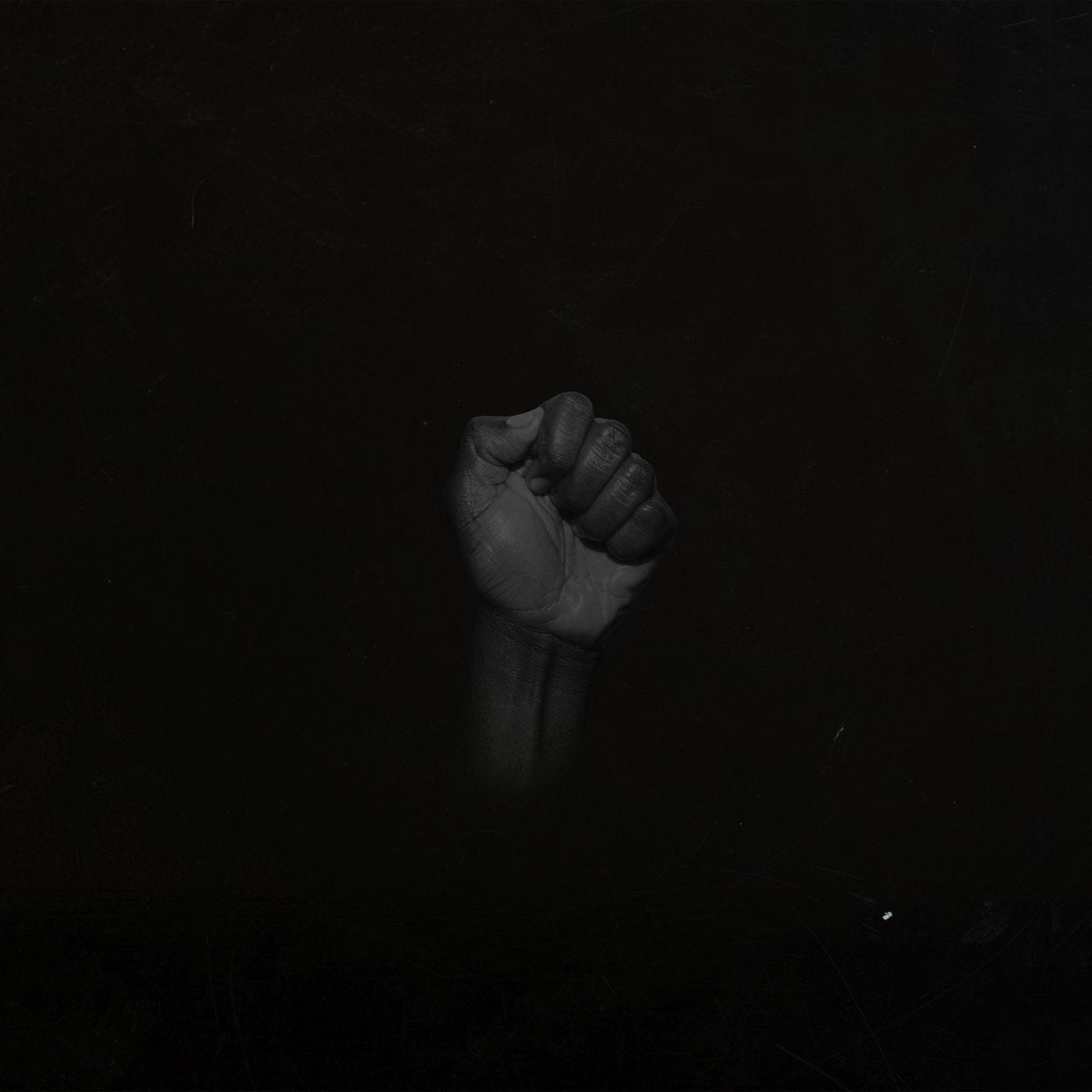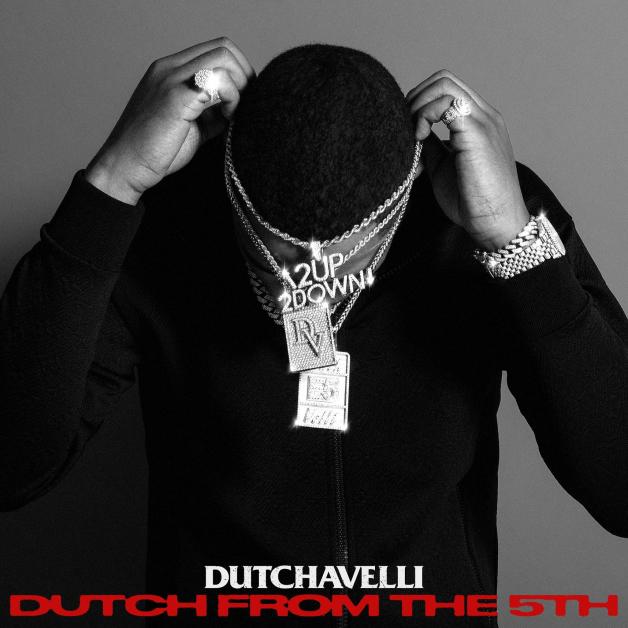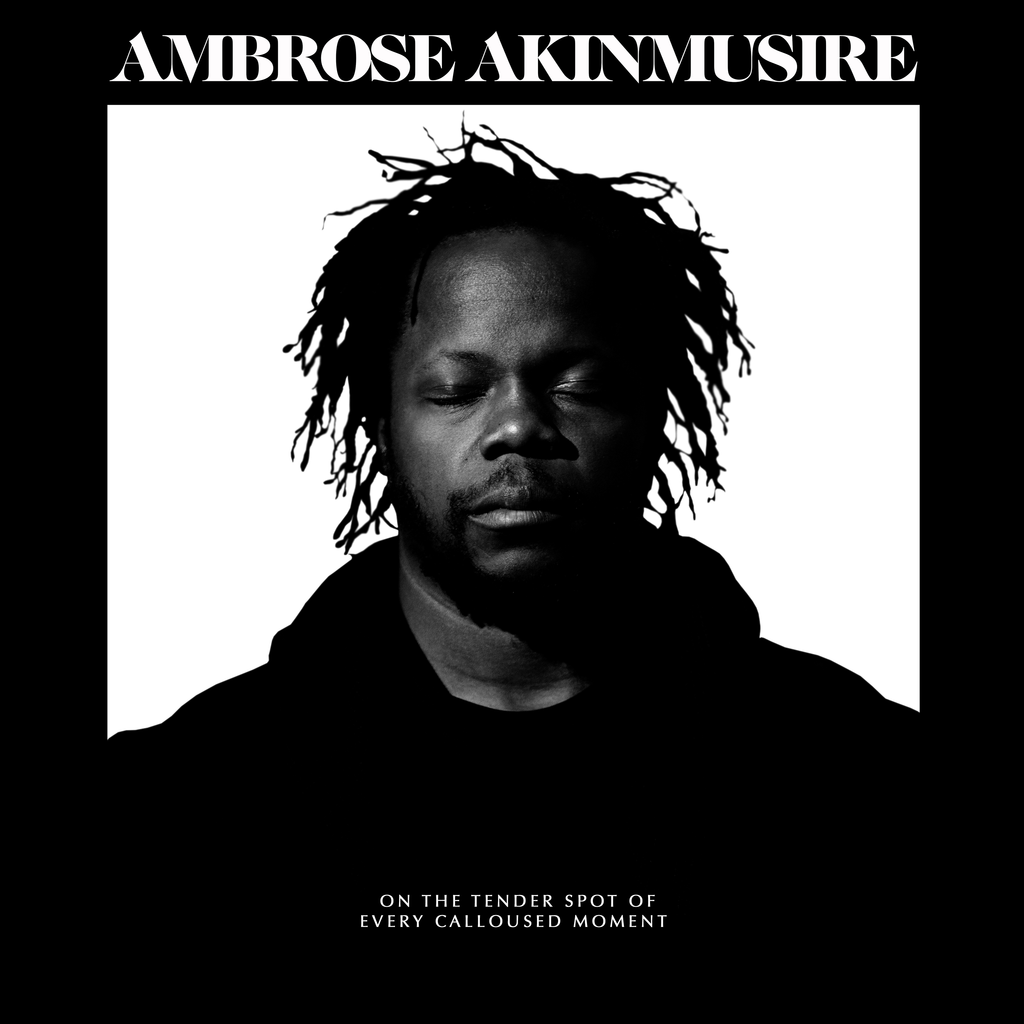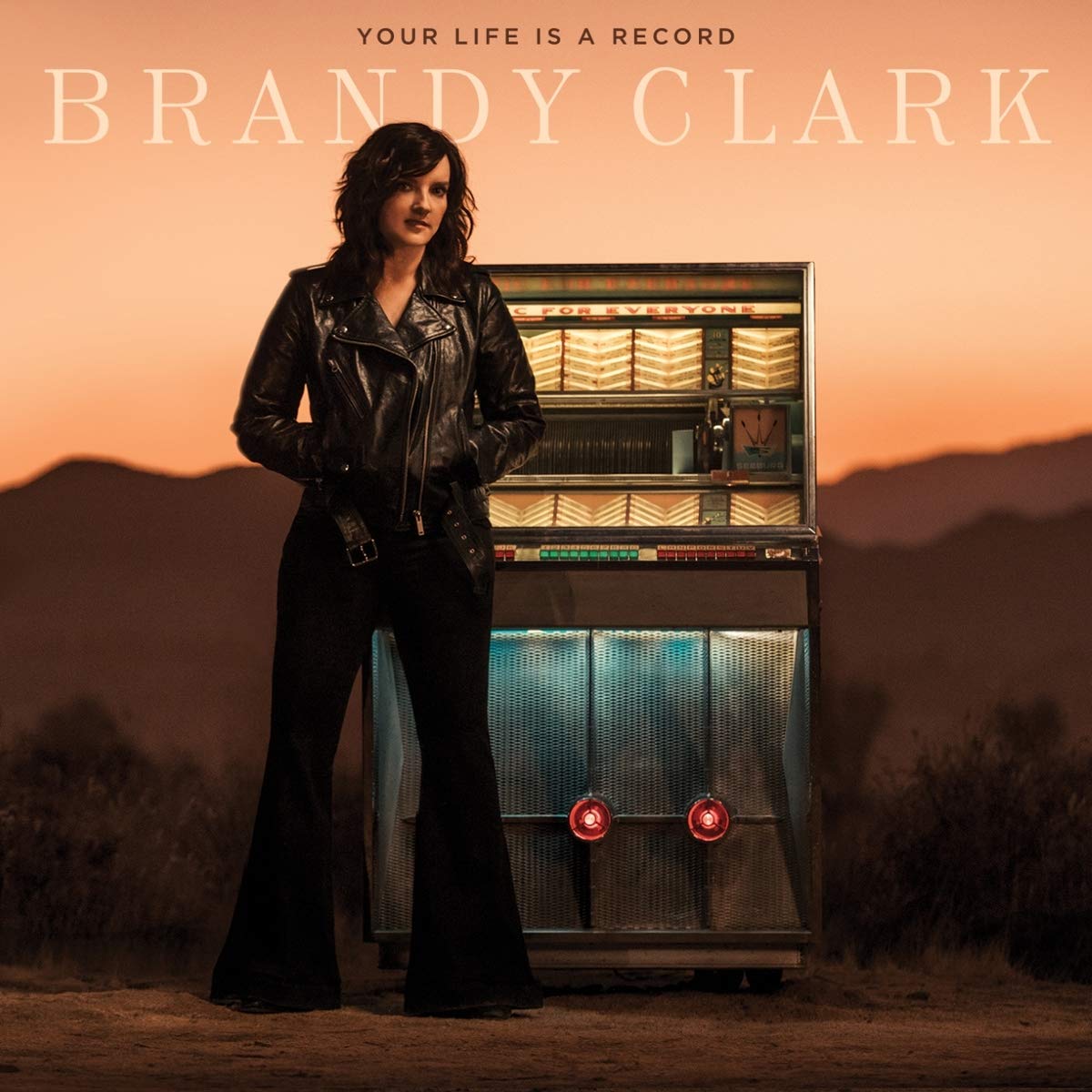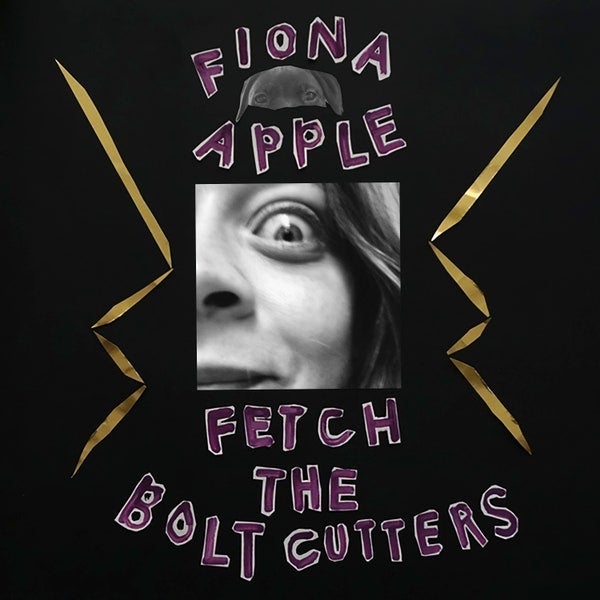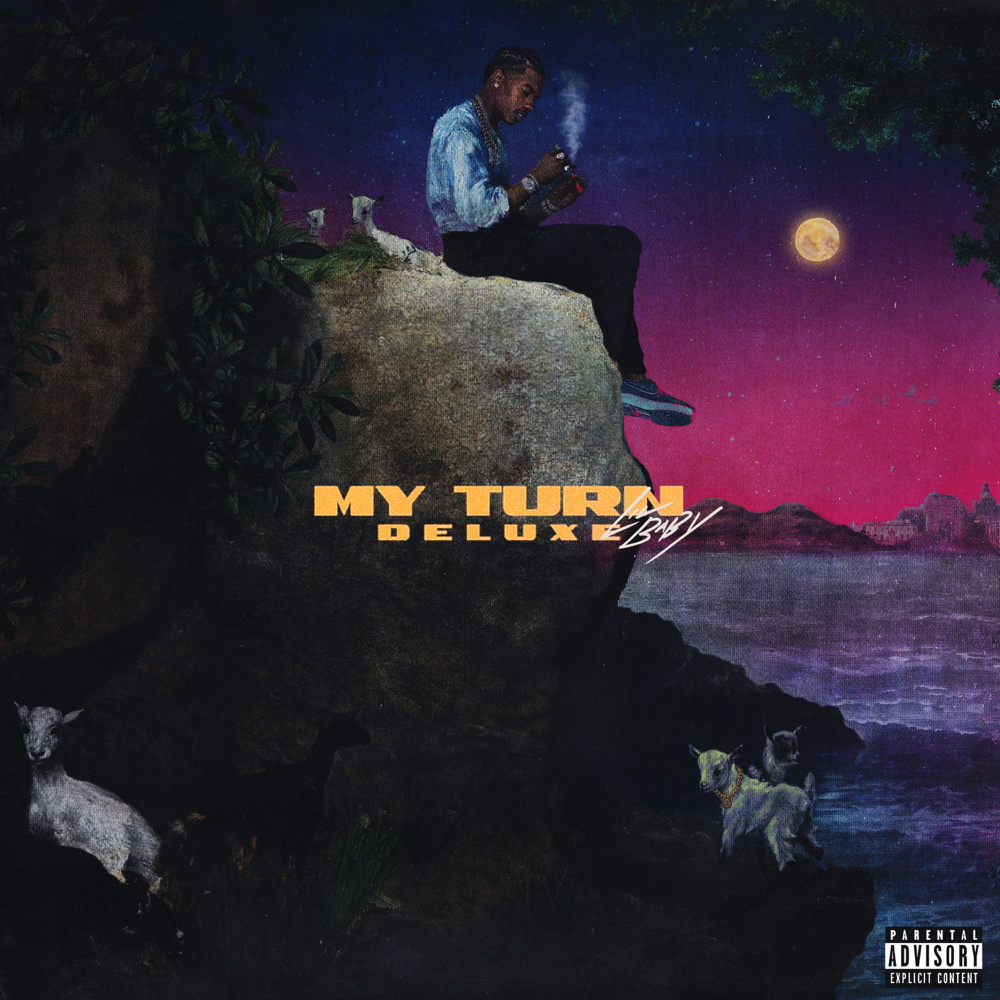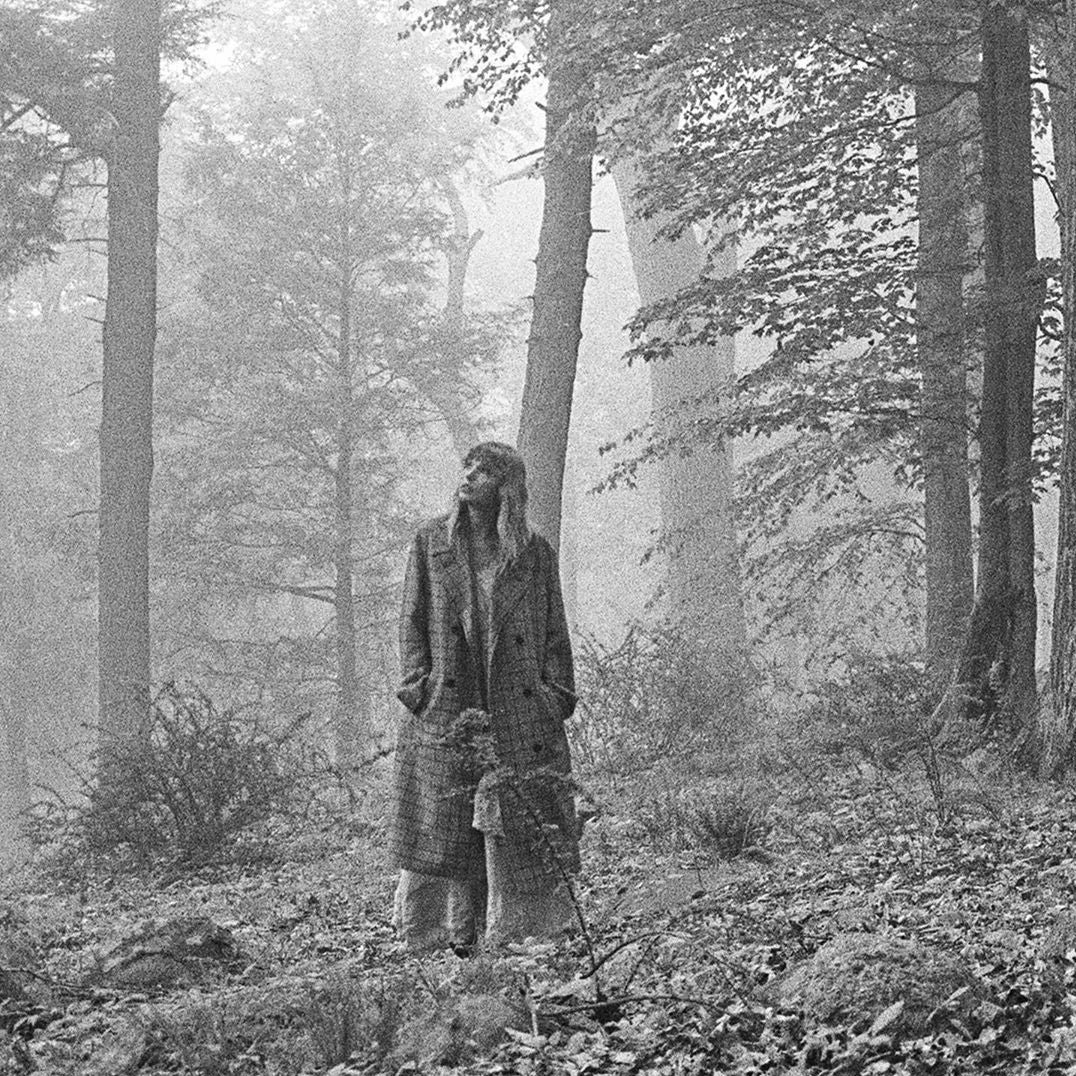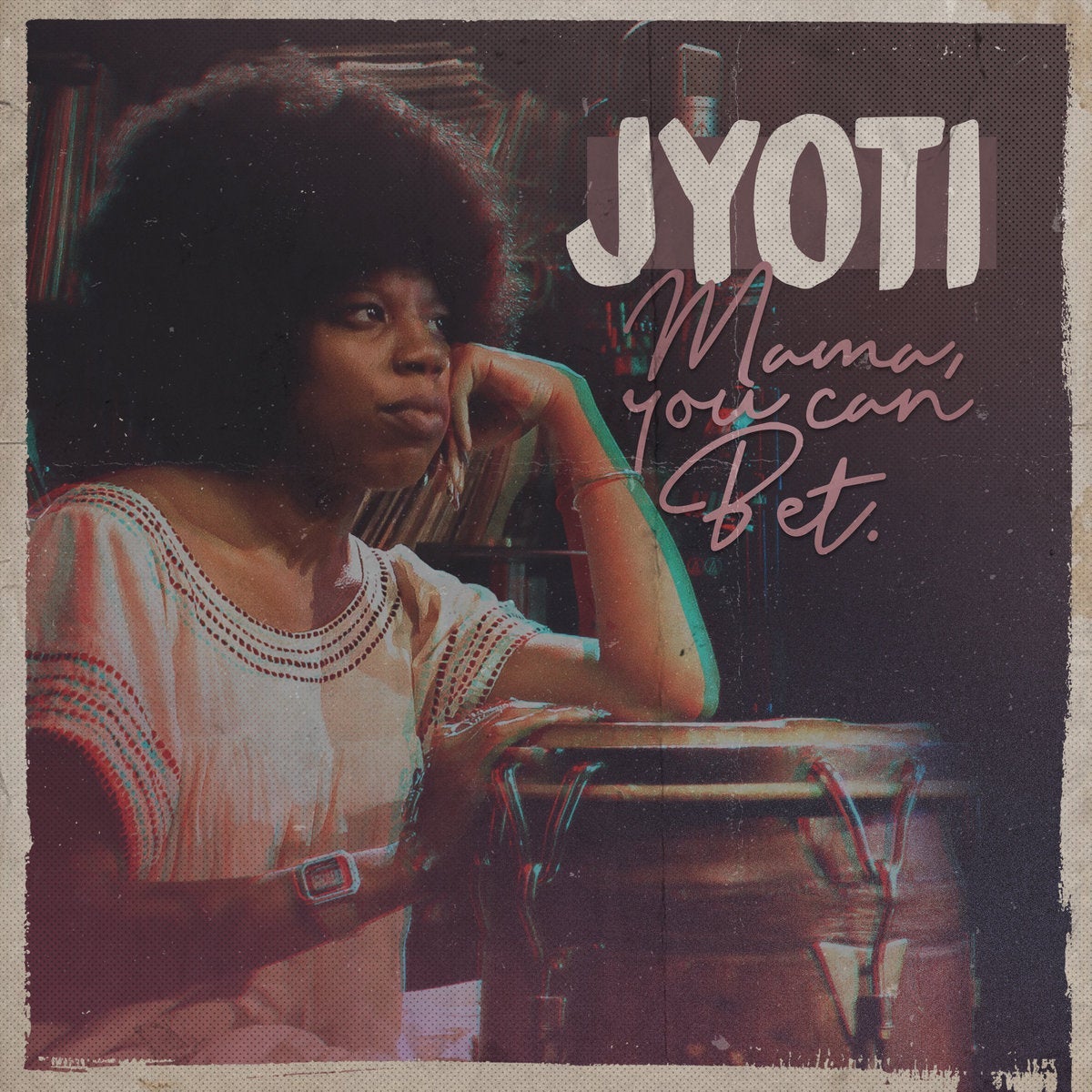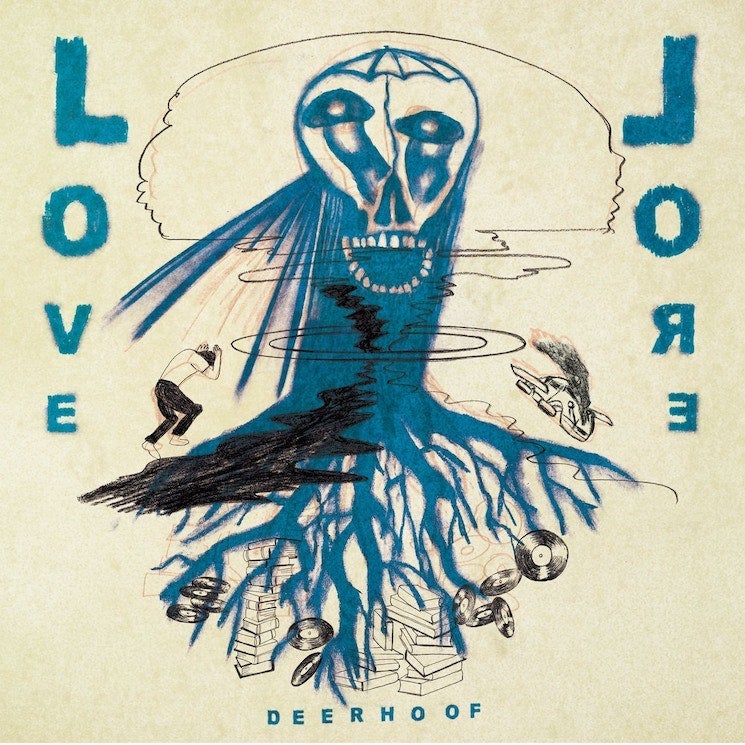Slate has relationships with various online retailers. If you buy something through our links, Slate may earn an affiliate commission. We update links when possible, but note that deals can expire and all prices are subject to change. All prices were up to date at the time of publication.
All “two kinds of people” statements are reductive, but one way to break down the population of Planet Music Critic is that there’s a tribe that relishes ongoing list-making, like sports fans who find poetry in stats, and then there are those of us who aren’t wired for it, who feel like we’re facing a huge chaotic haystack to be baled at each year’s end. I have a difficult enough time maintaining a to-do list from week to week, so while I aspirationally start files and playlists to track my listening, they inevitably fall into disarray. Every fall I start cribbing from my diligently databasing friends and colleagues to remind myself what I have and haven’t heard. Now multiply by a global pandemic and multiple social crises, and my methodology in 2020 has gone the way of many people’s career and school and parenting goals, down to rudimentary survival. If I don’t mention some of your favorites here, that may be why.
This year has seen fewer releases, no live concerts to ground them in the outside world, and less word-of-mouth recommendation and IRL discussion. Yet there’s been no lack of urgency and impact on our distanced but concentrated existences. This year my ears felt less like professional tools and more like human organs again. Assessing which artists’ works “matter” most has been even more of a mug’s game, but this has still felt like a profound year in music.
So these lists are even less systematic than usual, but perhaps more heartfelt. I present to you a baker’s dozen albums for the year of homemade sourdough and pastries (ranked by personal preference), and a couple of sampler trays of individual tracks (in alphabetical order by artist). Each set was trimmed down from initial lists of 80 or 90 records, so I’ve added “pairings” for each pick—cocktails of works comparable to the main choices in genre or spirit or je ne sais quoi.
Albums
1. Phoebe Bridgers, Punisher
I’ve joked to friends that my year-end list was going to read, “Don’t ask me—I only listen to Phoebe Bridgers.” The 26-year-old Los Angeles native and online sad-girl icon has made a mark every year since her 2017 debut Stranger in the Alps: In 2018 she was one-third of the indie-folk feminist “supergroup” Boygenius with Lucy Dacus and Julien Baker, and last year she teamed with Bright Eyes’ Conor Oberst to form the rock band Better Oblivion Community Center. But this year her blooming as a songwriter and performer has been displayed not only on second solo full-length Punisher, but in her flurry of online performances (clad in her trademark skeleton suit) and other offerings to fans since the shutdown in March. Each month her confidence and charm seem to increase.
Just in the past few weeks, she’s put out Copycat Killer, an EP of four Punisher songs with string arrangements by Bon Iver’s Rob Moose—and the other day, a video for one of them (“Savior Complex”) directed by Phoebe Waller-Bridge (Fleabag) and co-starring Paul Mescal (Connell from Normal People)—as well as a holiday EP led by a cover of Merle Haggard’s “If We Make It Through December,” and a duet with Maggie Rogers making good on a social media promise to cover “Iris” by the Goo Goo Dolls provided Donald Trump lost the election. Oh, and been nominated for four Grammys.
Following her progress wouldn’t be such an addictive pastime if Bridgers weren’t emerging as one of the most gifted songwriters of the newish century. Equal parts 1970s Laurel Canyon (especially Joni Mitchell), 1990s indie (especially the late Elliott Smith), and 2000s emo, her songs are utterly 2020 in how they weave mundane millennial idioms into poetic portraits and landscapes. They are lifelike in that they usually have several disparate things happening simultaneously. “Kyoto,” solidly one of the best songs of the year, is about the displacement and homesickness of touring, but also about coping with the burdensome love of an unreliable family member. Bridgers’ ways of sliding between subjects and emotions in beautifully simple turns of phrase and melody and black humor keep the songs surprising, disarming, and devastating no matter how often I hear them.
It doesn’t hurt Punisher’s claim on being the album of 2020 that it builds to a song about the apocalypse that climaxes with an unexpected scream.
Pairings: Excellent singer-songwriter albums by young women have been a boundless resource lately, led for me by Likewise by Frances Quinlan (from the band Hop Along), along with Saint Cloud by Waxahatchee, Soccer Mommy’s Color Theory, and songs and albums by Diet Cig, Bully, the Beths, Beabadoobee, Beach Bunny, Mitski, Torres, Down Time, or Emily Brown. Not to mention Bridgers’ friend, the up-and-coming L.A. boy songwriter Christian Lee Hutson (find “Lose This Number”), and her older collaborator Oberst, who reunited Bright Eyes this year for the fittingly titled album Down in the Weeds, Where the World Once Was.
2. Mary Halvorson’s Code Girl, Artlessly Falling
Mary Halvorson has established herself as an astonishing electric guitarist, composer, band leader, and sideperson across innumerable avant-jazz projects in the past decade-plus. Code Girl is her outlet as a writer of off-kilter songs with oblique lyrics and unpredictable structures. The group’s first album in 2018 set the template, but this record fulfills and expands it, especially with the appearance on three of the eight tracks by the British singer Robert Wyatt, an utterly singular and beguiling musical presence since the 1970s (you may recognize him as the original voice of the Elvis Costello 1980s classic “Shipbuilding”). He helps make Artlessly Falling a world one might fly away to indefinitely.
Pairings: The closest relation is the absorbing but more straightforward instrumental album Pedernal by Halvorson’s frequent collaborator, pedal-steel guitarist Susan Alcorn and her Quintet. I’d add the live Zurich Concert by my favorite early-mid-career trumpeter Jaimie Branch with the Dave Gisler Trio. But equally unclassifiable in their own ways are the recent reissues and new works by Canadian innovator Beverly Glenn-Copeland; the EP Here It Comes Again by Cate Le Bon and Group Listening; the beautifully bizarre L’inattingible by Delphine Dora; the atmospheric Solar Wind by Joëlle Leandre, Robert Dick, and Miya Masaoka; Memory Game by Meredith Monk with the Bang On a Can All-Stars; or even the much noisier Fra Det Onde by a trio from Norway of the same name plus the mysterious producer-guru Emil Nikolaisen of the group Serena-Maneesh.
3. Jessie Ware, What’s Your Pleasure?
I’m not sure if she changed or I did. The three previous albums by this thirtysomething London-based pop songwriter struck me as overrated outside of their better singles, but at first listen, What’s Your Pleasure? transported me with pretty much every track. Melding current dance pop and classic disco, it’s ideal fare for isolated solo boogie parties or for bubbled romancing, and to me it’s more consistent than Dua Lipa’s more ubiquitously praised Future Nostalgia or Kylie Minogue’s Disco. I’d nearly venture it’s the miraculous equal of classic Giorgio Moroder productions on songs such as the closing “Remember Where You Are.”
Pairings: The aforementioned Dua Lipa and Minogue, and other pop candidates such as Lady Gaga’s Chromatica and Ariana Grande’s Positions, plus perhaps the year’s best pure R&B records such as Teyana Taylor’s The Album or Kehlani’s It Was Good Until It Wasn’t, as well as slipperier ones such as the Weeknd’s After Hours and 070 Shake’s Modus Vivendi.
4. The Mountain Goats, Songs for Pierre Chuvin
Songwriter John Darnielle’s three-decade-standing indie-music institution already had a studio album recorded when the shutdown happened in March. It’s called Getting Into Knives, it eventually came out in October, and it’s very good. But facing a year without touring and thus without paying his band, the famously diligent and prolific singer-songwriter came up with a contingency plan: He’d fund them by making an album the way he did in the Mountain Goats’ first decade, recording solo onto a Panasonic boombox at home. The result is Songs for Pierre Chuvin, a cassette of songs written and recorded in 10 days in April, inspired by A Chronicle of the Last Pagans, a book by the titular Chuvin that its publisher describes as being “a history of the triumph of Christianity in the Roman Empire as told from the perspective of the defeated: the adherents of the mysteries, cults, and philosophies that dominated Greco-Roman culture.” The songs eerily fit whatever kind of decline and defeat our culture was going through this year, but more so the album recaptured the poetic compression and rough-hewn romance of those long-ago Mountain Goats tapes. An ephemeral unity of necessity, content, process, and form: It turns out you can go home again, as long as you assume that your home was a smoldering pile of rubble in the first place.
Pairings: Along with Getting Into Knives, I might mention here the terrific 2020 EP Day of the Tiles by erstwhile Darnielle collaborator Franklin Bruno under the band name the Human Hearts, which also filters contemporary issues through metaphor on songs like “A Different City for a Different Life.” Another sometime Mountain Goats contributor, Canada’s Owen Pallett, finally released his long-delayed album Island, which is ravishingly worth the wait. In a close parallel to Darnielle’s move, indie-folk songwriter Phil Elverum returned to his long-retired bandonym the Microphones (after years of recording as Mount Eerie) for Microphones in 2020, one 45-minute acoustic track that extends his intimate account of his life and thoughts. Darnielle’s 1990s songwriting peer Bill Callahan also revisits and revises past themes and songs on Gold Record. In the U.K., former Hefner leader Darren Hayman returned, after scads of departures, to his dysfunctional-romance muse on the lovable and lockdown-made album Home Time. And there was a similar days-of-future-past shock to the reunion of early L.A. punk band X for Alphabetland, startlingly better than anyone would have bet.
5. Sault, Untitled (Rise)/Untitled (Black Is)
It’s up to you (for now) whether you think the anonymity of the members of this U.K. Black-electronic-dance-and-beyond collective is a political, aesthetic, or media-publicity strategy. But with their third and fourth albums this year (after two in 2019), one thing they’re obviously not is a fluke or novelty. Musically rich across a wide range of diasporic sounds and styles, pointedly in step with the Black Lives Matter march, and with so much material it’s a serious challenge to absorb it all, they’ve earned nigh-universal critical acclaim this year—and will doubtless stand as many year-end-list readers’ biggest seasonal discovery.
Pairings: They’re already a pair, nearly an hour each, but if you can absorb more, I’d parallel Sault’s approach to the wealth of politically conscious, collective-based Afrocentric soul-jazz coming out of London in recent years, with 2020 additions including Shabaka and the Ancestors’ We Are Sent Here by History, Moses Boyd’s Dark Matter, Nubya Garcia’s Source, and Makaya McCraven’s Universal Beings E&F Sides. And of course you could trace back from there to the mothership, the Sun Ra Arkestra, whose contemporary incarnation released the album Swirling this year—or to Africa itself, from which septuagenarian Ethiopian-jazz originator Mulatu Astatke reunited with Melbourne’s Black Jesus Experience for this year’s To Know Without Knowing.
6. Dutchavelli, Dutch From the 5th
One of my many unfulfilled 2020 resolutions was to gain a broader familiarity with current rap in the U.K. (and its subgenres of grime, drill, road rap, Afro Swing, etc.). It’s clearly enjoying a rude health unwitnessed since the first-wave grime explosion 20 years ago—and, for instance when I’ve caught it in the soundtracks of U.K. series such as I May Destroy You and Top Boy, it often seems more appealing to me sonically than a lot of U.S. post-Soundcloud Gen Z rap. U.K. drill icon Dutchavelli’s recent full-length debut—his career was derailed for several years by trouble with the law—is one that grabbed me immediately with its stark, unsettling production and the rapper’s guttural, hard-but-vulnerable bars on tracks like “Darkest Moments” and “Never Really Mine.” I’m slotting it in the middle of this list to tempt other North American listeners its way but also as a promise to myself to dig deeper in 2021.
Pairings: The other U.K. rap album from last month that caught my ear was Send Them to Coventry by grime newcomer Pa Salieu, who hails from Gambia via the Midlands, and popped up in a profile in the New York Times while I was writing this. Others to follow, older and new: Stormzy and Skepta, of course, as well as Nines (Crabs in a Bucket), J Hus, Headie One, Tion Wayne, D Double E, Blanco, Young T & Bugsey, Kojey Radical, AJ Tracey, Ghetts.
7. Ambrose Akinmusire, On the Tender Spot of Every Calloused Moment
Oakland-born trumpeter Akinmusire, 38, has been a recognized force in American jazz for years now, rooted in Steve Coleman’s Five Elements scene and featured on the blue-chip Blue Note label since 2011 (as well as on Kendrick Lamar’s To Pimp a Butterfly in 2015). Even within his distinguished portfolio, though, On the Tender Spot of Every Calloused Moment stands out for its sense of scope and emotional probity. The track names suggest a journey and development from track to track that is not spelled out literally but corresponds to the pull the music exerts on the listener, as if through neighborhoods and street scenes, or landscapes of trauma and renewal. The meditative sixth piece, the hinge of the album’s 11 tracks, refers to a “Reset (Quiet Victories & Celebrated Defeats).” It’s only with the strangled penultimate piece “Blues (We Measure the Heart With a Fist)” and the closing “Hooded Procession (Read the Names Outloud)” that a direct connection feels made to the outrages and protests of 2020. But from the first, it’s music to read and absorb troubled histories by.
Pairings: Some other jazz albums near Akinmusire’s level of accomplishment and zeitgeist sounding would include (but are not necessarily limited to) Jeff Parker’s Suite for Max Brown, Kahil El’Zabar’s America the Beautiful, Immanuel Wilkins’ Omega, Chicago Underground Quartet’s Good Days, and living landmark Charles Lloyd’s 8: Kindred Spirits.
8. Brandy Clark, Your Life Is a Record
An intimate country-soul setting marks this latest collection from one of the greatest living short-story-song writers in country (which really means in any genre). As I wrote when it came out during the last gasps of the Before Times, it’s a more autobiographical-seeming and tender-nerved record than the mid-40s Nashville lesbian Clark has ventured before, and it evokes the whole cycle of the making and collapse of a relationship without being doggedly concept-ish about it. Which is to say it spends about three-quarters of its time patiently dismantling your heart.
Pairings: I don’t think there’s a 2020 country or country-adjacent album that outdoes Clark’s, but a few that take a good run include Waylon Payne’s eye-opening Blue Eyes, the Harlot, the Queer, the Pusher & Me, the Chicks’ comeback album Gaslighter, Sam Hunt’s long-awaited Southside, Ashley McBryde’s Never Will (a weaker but still persuasive follow-up to her 2018 breakthrough Girl Going Nowhere), Chris Stapleton’s recent Starting Over (which doesn’t start over at all but makes damn clear he’s going to keep doing what he’s doing), Jason Isbell and the 400 Unit’s Reunions, Maddie & Tae’s The Way It Feels, bluegrass guitarist Molly Tuttle’s hypereclectic pandemic-recorded covers album But I’d Rather Be With You (including songs by Harry Styles, Rancid, and Arthur Russell), and Mickey Guyton’s shamefully underrecognized Bridges EP.
9. Fiona Apple, Fetch the Bolt Cutters
It’s going to be difficult for this record ever to live up to the impression it made on arrival in April, when (as I discussed on the Slate Culture Gabfest at the time) the music world’s lockdown-benumbed senses seemed to spring alive as one the moment that Apple’s percussion-and-voice-centered, identity-asserting album came a-knocking, her first in eight years. Even after months without revisiting it, I can effortlessly spin on my mental jukebox songs such as the title track, the opener “I Want You to Love Me,” my favorite “Heavy Balloon,” as well as “Shameika”—which is a rare phenomenon for me these days. The latter tune also led to a delightful (and on many levels reassuring) sequel last month when its title character, a long-lost friend from elementary school, reunited with Apple to produce a kind of answer song, “Shameika Said”—and proved a credible Golden Age–style rapper in the process.
Pairings: I’d honestly peg Bolt Cutters as a one-of-a-kind phenomenon in 2020 culture. And you know what the other one of those was. So yeah, it’s a case of Fiona meets “WAP.”
10. Lil Baby, My Turn (Deluxe)
Granted there are plenty of better 2020 hip-hop albums, but none that are as good and as 2020 as this one by Lil Baby, who simply sounds and feels like where rap’s at right now without succumbing so much to the worst of its TikTok-era endlessly looping soundbite trends—and has something to say at least a significant minority of the time, as on “Grace,” “Emotionally Scarred,” and of course the bonus protest single “The Bigger Picture.” And Lil Baby has the vocal magnetism to keep my ear alert even when the emotional realness ebbs, even though he has not an iota of flash. Yes, of course the whole mess is nearly twice the length it should be, but in 2020 that’s kind of a minor technical detail.
Pairings: Those better 2020 hip-hop albums include Run the Jewels’ RTJ4, Roc Marciano’s Mt. Marci, Freddie Gibbs and the Alchemist’s Alfredo, Future’s High Off Life, Jay Electronica’s A Written Testimony, Megan Thee Stallion’s Good News, Flo Milli’s Ho, Why Is You Here?,
Pop Smoke’s Meet the Woo 2 and sadly posthumous Shoot for the Stars, Aim for the Moon (I prefer the former), 21 Savage and Metro Boomin’s Savage Mode II, and Ka’s Descendants of Cain. Many people might say Lil Uzi Vert’s Eternal Atake; I would not.
11. Taylor Swift, Folklore
I stand by what I said. Too much can be made of the changes in instrumentation and production (particularly via the National’s Aaron Dessner) on Folklore. It is not as radical a departure as it initially sounds. But you can’t overstate how crucial (and overdue) it was at this point in Swift’s growth as an artist for her to get out of her own head and her own biography and write from a broader perspective. Ironically, on her lockdown album, she finally burst more fully out of the bubble that had been enclosing her for years in (as the song acknowledges) a “Mirrorball” of defensive resentments. Some of these songs aren’t actually about her at all but about universal human experiences and feelings. Encore, encore! You may not consider it her best album, but it’s absolutely the only one that never makes you wince in embarrassment for her. That she was already otherwise one of the best songwriters in pop music is a given.
However, I will add that the bonus track “The Lakes” is the proper ending to the album and should have been there from the start, and is the one time I stop and say, “WTF, Taylor Swift actually wrote that?” She makes deftly ironic juxtapositions of social media jargon and Romantic poetry, not the rom-com or fairy-tale sort but that real 19th-century Wordsworthian shit: “A red rose grew up out of ice frozen ground/ With no one around to tweet it/ While I bathe in cliffside pools/ With my calamitous love and insurmountable grief.” That tradition is what the song’s directly about—along, of course, with getting ripped off for her back catalog by Big Machine’s Scott Borchetta, whom she taunts with the groaningly apropos pun, “Tell me, what are my words worth?”
Pairings: If you like this album at all, watch the Long Pond Studio Sessions documentary. It’s worth it. And for a healthy ethno-ethical-chemical balance, wash down with actual folkloric albums such as Shirley Collins’ Heart’s Ease (she does a killer “Barb’ra Allen”) and Alasdair Roberts’ Fretted & Indebted—though I’m even fonder of the Scottish singer’s other 2020 record, The Songs of My Boyhood, in which he covers with new maturity and skill the more jejune material of his 1990s indie-folk band Appendix Out.
12. Jyoti (Georgia Anne Muldrow), Mama, You Can Bet!
This passionate tracing of genealogies and migration lines through the history of Black music from this West Coast jazz artist, the third in a series, couldn’t have felt any more timely and restorative when it arrived in September. Folkie and postmodern, meditative and funky, cerebral and sensual, it follows from past hip-hop/jazz and neo-soul hybrids without extending their stale trails of weed smoke. Although mood enhancers of choice wouldn’t go amiss here, the real high it’s on is the full potential of the Art Ensemble of Chicago’s watchword, “Great Black Music, Ancient to the Future.”
Pairings: Along with many of the albums mentioned alongside Sault above, Jyoti’s ancestor-honoring aspirations might be served by a listen to the late Tony Allen and Hugh Masekela’s Rejoice. But its actual sound and genre-multiplying womanism perhaps pair best with the nonconformist boundary-busting R&B of KeiyaA’s Forever, Ya Girl—and for bonus points, Brooklyn jazz drummer/songwriter/hip-hop producer Kassa Overall, with his personal-political odyssey into mental health and social justice, I Think I’m Good.
13. Deerhoof, Love-Lore
Speaking of genealogies, this West Coast experimental-noise-pop band founded in 1994 celebrates the roots that feed its unbelievably sustained streak of quality on this year’s Love-Lore, a set of five medleys that interweave irreverent cover/tributes to everyone from Stockhausen and Morton Feldman to Kraftwerk and Ornette Coleman to the Velvet Underground and the Beach Boys, to the Knight Rider and Star Trek theme songs and Eddy Grant’s “Electric Avenue” and Kermit the Frog, with a fluid exuberance you have to hear to believe. And no matter what they’re playing, they still sound like nobody but rubbery, spasmodic, affection-suffused Deerhoof.
Pairings: This is only one of four records Deerhoof put out this year. There’s a regular-Deerhoof-songs album called Future Teenage Cave Artists, a collaborative live album with the great AACM Chicago trumpeter-composer Wadada Leo Smith (gloriously titled To Be Surrounded by Beautiful, Curious, Breathing, Laughing Flesh Is Enough), and another called Surprise Symphonies I haven’t had time to hear.
Songs
Bad Bunny, “Yo Perreo Sola”
Arguably the biggest popular-music star in the world today demonstrates his irresistibility, from the Puerto Rican multihyphenate’s 2020 album YHLQMDLG (which stands for the Spanish for “I Do What I Want”).
Burna Boy, “20:10:20”
The king of “Afrobeats” (a term he dislikes, preferring “Afro-fusion”), Nigeria’s Burna Boy becomes more outspoken by the year. In October, he issued this single protesting Nigerian security forces’ shootings of anti-police protesters in Lagos earlier that month. Besides its own inherent power, a reminder to listeners in the global North that our issues aren’t unique.
Johnniqua Charles/DJ Suede the Remix God, “You About to Lose Your Job (Remix)”
Collective creativity in street protest often goes unarchived, but Johnniqua Charles’ didn’t after a South Carolina nightclub security officer tried to apprehend her in June. She was taped singing a spontaneous resistance ditty; it went viral, drew dance remixes, and became a widespread Black Lives Matter chant in its own right—still, months later, sung at Donald Trump outside the White House after the election results finally became clear in November. (Predictably, the outcomes for Charles herself have been less consistent.)
Charli XCX, “Anthems”
One of the first albums declared as made-in-lockdown, Charli XCX’s How I’m Feeling Now didn’t entice me as much as it did many fans, but a few of its songs were potent anthems for the moment. Luckily, the one called “Anthems” was among them.
Dua Lipa, “Don’t Start Now”
Likewise, while I don’t love Lipa’s album as a whole as much as many listeners do, some tracks fully merit the overused title of “banger.”
Bob Dylan, “I Contain Multitudes”
In March, Dylan announced his return to recording original songs with the monumentally oddball 17-minute “Murder Most Foul” (his longest song ever and amazingly his first No. 1 on a Billboard chart)—it becomes transcendent in its second half but is rather an “OK, boomer” grind before then. But its follow-up, this Walt Whitman–invoking auto-manifesto, similarly sweeps all of culture into Dylan’s omnivorous maw, but with more self-awareness—and vouchsafed what a satisfying romp the full Rough and Rowdy Ways album would prove to be. (Bruce Springsteen’s Letter to You album seems its only rival for new material from rock-era legends, though Joni Mitchell’s and Neil Young’s archival sets deserve a nod.)
Mickey Guyton, “Black Like Me”
“Old Town Road” made the thorny knot of race and country music one of 2019’s major musical talking points, but there’s been surprisingly little follow-up after this year of Black Lives Matter uprisings. In the mainstream, it’s mostly just Breland’s very “Old Town Road”–style nudger “My Truck” (with Sam Hunt on the remix), and this brave, unflinching song by a Black woman who’s been struggling too hard for way too long to take her much-deserved place in Nashville. For protest from within, though, credit is also due to Eric Church’s “Stick That in Your Country Song,” which points at Detroit and Baltimore and underfunded schools to indict Nashville for what it won’t sing about but never mentions race directly and therefore got some country airplay. Both Church and Guyton scored Grammy nominations in country categories—Guyton making history as the first Black woman to do so.
Sam Hunt, “Hard to Forget”
Hunt’s album was uneven, but this ultra-creative single was one of the best in country in 2020, and one wonders how much bigger it might have been if he’d been able to tour behind it and there’d been clubs to hear it in. Written by Hunt along with a Music Row murderer’s row of co-writers (Ashley Gorley, Luke Laird, Shane McAnally, and Josh Osborne) with a beyond-the-grave sample from honky-tonk hero Webb Pierce, it warped time and space just as a dose of heartbroken, drunk, self-deception can do. (For an opposite-sex sodden chaser, mix it with Kelsea Ballerini’s “Hole in the Bottle.”)
Megan Thee Stallion ft. Beyoncé, “Savage (Remix)”
I blasphemously prefer this one to “WAP” among Megan Thee Stallion’s landmark musical moments in 2020, as well as to Beyoncé’s own “Black Parade.” Among many other qualities, it’s another of those moments when Beyoncé maddeningly demonstrates that along with everything else, she can rap better than pretty much anyone else when she cares to. I’ll also pause to acknowledge the conversation-changing (or perhaps confounding) influence of Noname’s “Song 33,” as well as songs by Rapsody, Rico Nasty, City Girls, and Flo Milli, and apologize for lumping them together but that’s how this list is formatted.
Perfume Genius, “On the Floor”
More queer organic/electronic brilliance from Mike Hadreas here, from his terrifically named album, Set My Heart on Fire Immediately. Serve alongside Venezuelan producer Arca’s nonbinary, promiscuously collaborative electronic experimentalism on Kick I.
John Prine, “I Remember Everything”
This lovely and summarily representative song was part of a body of unfinished work left after the veteran singer-songwriter’s death from COVID-19 in April and released posthumously in June. You can debate the ethics, though in this case I tend to trust his widow, Fiona Whelan. Posthumous releases were all too common in 2020 music, most wrenchingly for very young hip-hop artists, but I’d also like to acknowledge the beauty of the Jason Molina album Eight Gates, released seven years after the Songs: Ohia and Magnolia Electric Co. singer songwriter’s sad demise back in 2013, at only 39.
John K. Samson, “Millennium for All”
This is an obscure choice—the singer-songwriter of the (mostly?) defunct indie-emo-folk-rock band the Weakerthans from Winnipeg, Manitoba, sings a song protesting (pre-pandemic) restrictions on public use of the local library. The rules were attempts to usher out homeless people and drug users. Samson’s way of expressing the value of universal access to public resources makes me weep every time. Also in the vein of old-fashioned folkie social consciousness, I commend to you Chad Matheny’s “The Ballad of HPAE Local 5058” (this year could have used more health care labor anthems), William Prince’s “Gospel First Nation” (from his album of the same name about the complex relationship between indigenous communities and Christian worship), Rhiannon Giddens’ “Don’t Call Me Names,” Tyler Childers’ “Long Violent History,” and all of Shemekia Copeland’s Uncivil War and Steve Earle’s Ghosts of West Virginia albums.
Rina Sawayama, “XS”
A new name to me this year, the Japanese-British Sawayama has an impressive range of pop chops—and I love that on tracks like this one and “STFU!” she’s willing to combine them with a strategically detonated blast of heavy metal here and there. Twenty-first-century genre blending at its best—in conversation with the commonplace style hopping within single songs in K-pop, such as the Black Pink x Selena Gomez matchup “Ice Cream.”
Amanda Shires, “The Problem”
Member of country supergroup the Highwomen as well as husband Jason Isbell’s the 400 Unit, Shires is a formidable singer-songwriter in her own right. Here she raises a subject that is going to need a lot more attention when the Trump debacle and the pandemic are behind us, the threat to women’s reproductive rights. The way she delivers her representative tale is stoic and steady, not a lecture or speech, and all the more stunning for it. The same can be said of Bright Eyes’ “Miracle of Life,” another powerful abortion song this year—while Stephanie Lambring’s songs about Christian hypocrisy, such as “Joy of Jesus,” are a little more excoriatingly unrestrained.
Sufjan Stevens, “My Rajneesh”
I was quite taken with a lot of Stevens’ full-length The Ascension, but maybe my favorite track of his in 2020 was this nonalbum single turning over in his religiously inclined mind the paradoxes of cult leaders and followers, specifically the ones depicted in the popular 2019 Netflix documentary Wild Wild Country. In the zone of midcareer indie dudes, let us here also give praise to Stephen Malkmus’ Traditional Techniques, as well as Destroyer’s Have We Met, which would be on my albums list if songwriter/leader Dan Bejar weren’t a family friend.
Bartees Strange, “Mustang”
Meanwhile here’s a rare promising male debut in ye olde indie-rock enclosure, and a nonwhite male debut at that, which seemed worth a stand-alone salute.
The Weeknd, “Blinding Lights”
Since the Grammys mysteriously refused to do it, let us rain down laurels here on one of 2020’s biggest hits. Among the year’s other chart toppers, I will profess my fondness for DaBaby ft. Roddy Rich’s “Rockstar,” before the unnecessary and somewhat opportunistic “BLM Remix.” And an honorable mention for Maren Morris’ “The Bones,” which came out in 2019 but became one of the signature sounds of 2020 for me, as well as the Billboard charts (mostly but not solely in country, where it set records).
YG, “FTP”
A chanted YG initialism anthem ushered in the Trump era (“FDT”) and now another is pushing its ass out the door—and while some old leftovers like me might have wondered why hip-hop would ever need another song called “Fuck the Police,” we came to understand that each generation must fuck the police in its own way. This is where we also give props to rap protest tracks such as Pharoahe Monch and Styles P’s “Same Shit, Different Toilet,” Terrace Martin with Denzel Curry and Kamasi Washington on “Pig Feet,” Freddie Gibbs’ “Scottie Beam,” everything Run the Jewels and Clipping did, and, speaking of old heads, Stevie Wonder ft. Rapsody, Cordae, Chika, and Busta Rhymes on “Can’t Put It in the Hands of Fate.”
Zagga, “New Hail”
Early in the pandemic, there were a hell of a lot of novelty songs about the coronavirus all around the world. Most were pretty bad. This one by Jamaican dancehall artist Zagga, about foot-bumping instead of fist-bumping in greeting, was not bad but in fact the cutest thing ever.
